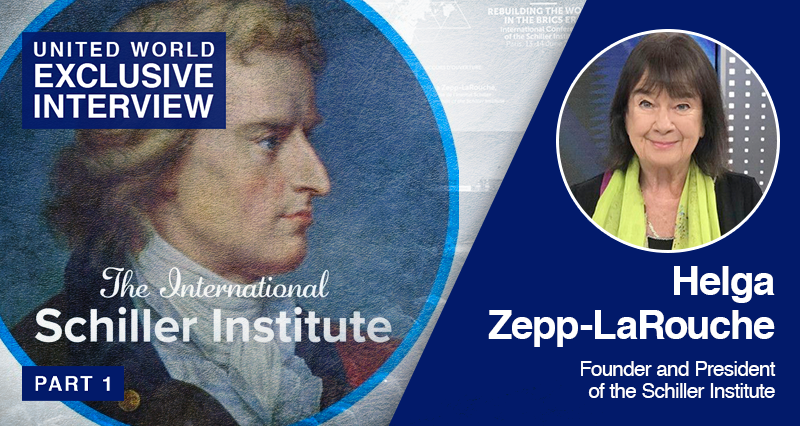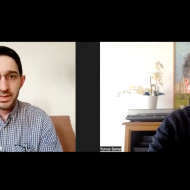We conducted an extensive interview with Helga Zepp-LaRouche, the founder of the Schiller Institute, which we will publish in 3 parts. The first part covers the aims of the Schiller Institute and Helga Zepp-LaRouche’s ideas on the nature of international relations.
Let us start by talking about the aims and ideas of the Schiller Institute that you founded.
We advocate a system of international relations based on the best traditions of all countries and friendship, in which the security and development of all countries can be ensured.
In the case of Germany you would not refer to 12 years of horror show of the 20th century, but would think about Leibniz, Lessing, Schiller, Bach, Beethoven. And the other way around you do not focus on the negative sides of the other countries, but you highlight the best tradition, in that way create a dialogue of cultures across the centuries between the best what each nation has produced.
Two major goals
It was the idea that foreign policy should be statecraft as an old-fashioned notion, one that is not used anymore. Friedrich Schiller says “developing that the highest piece of art is the building of political freedom”. That is the idea that Schiller Institute had when it was established.
We had and have two major goals.
One was the need to replace the existing world economic system with a new and just world economic order, which will allow for the economic development of every single nation on the planet, especially eradicating poverty in the global south. Because it was clear that the continuation of colonial system in its modern form, which expresses itself by the underdevelopment and poverty of several billions people on the planet, cannot not continue forever. In one sense I am very happy when I look at the present development because I see that one of the long-term goals of Schiller Institute is getting closer to realization.
The second focus was that the things above mentioned could only function if you combine them with a renaissance of classical cultures. The idea was “to look at the history of every nation and look what periods were highpoints”. For example the Confucian tradition in China, the renaissance in Italy, the polytechnic tradition in France, the classical period in Germany.
Schiller Institute has done a lot during almost 39 years. If you look at the chronology of our activities I can say proudly that we were enormously productive.
Then you or Schiller Institute does not agree with the main street international thesis that “there is not constant friendship and enmity between countries, but only constant interests”?
No. That is oligarchical conception. That is definitely case among empires. I think empires don’t have friendship and decent relations the country that they subdue or are competing with. But I don’t think that that conception applies for well-functioning nation state, which is devoted to common good.
Look at the relation between China and the African nations: Xi Jinping said several times that China feels a deep friendship for the Africa continent and individual African nations, and vice versa African leaders have a similar attitude towards China. I think that is honest because the basis of that friendship has been real help. China has started to help to overcome the poverty in Africa by investing in infrastructure, trains, industrial parks and in that way has done something extremely important for the respective nations. Once the friendship has such a content that you do something for the other it does have the effect of defining of the feeling also. Friendship is not only an intellectual thing, but also emotional. I emphatically would pledge other friendship among nations is desirable and it is actually the human condition for people to live.








You are invited to watch the Schiller Institute’s international video conference live on Saturday, February 4, or afterwards at http://www.schillerinstitute.com. The title is, “The Age of Reason, or the Annihilation of Humanity.”